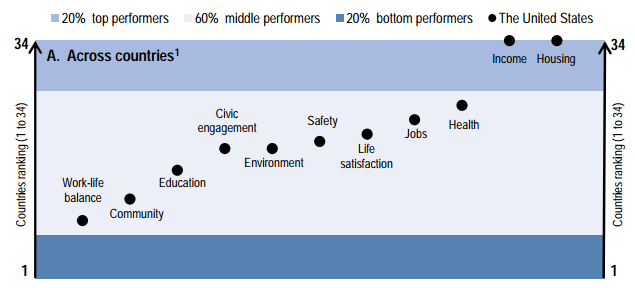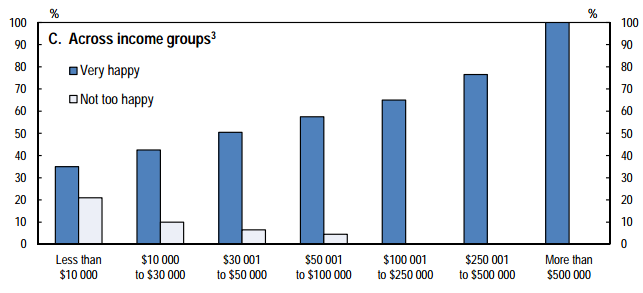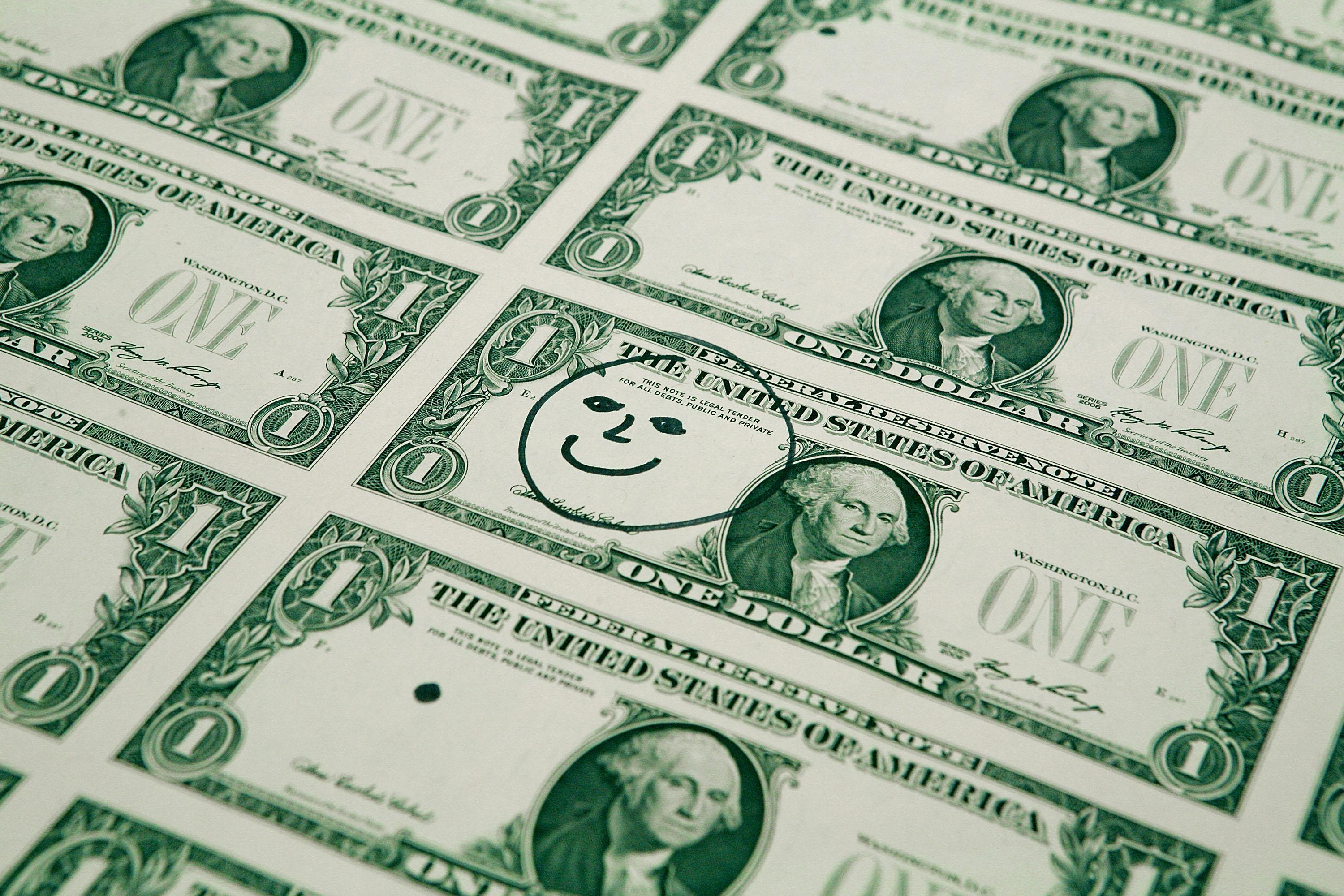The Organization of Economic Co-Operation and Development is out with its big survey on the U.S. economy—a delightful compendium of everything from our energy use to how our minimum wage stacks up globally to how our economic recovery is faring compared to Europe’s (in a word, better). For the moment, though, and because it’s Friday afternoon, I wanted to break out a little series of graphs about happiness.
So three lessons.
Lesson 1: Compared with other countries, we’re rich, overworked, and lonely, but decently satisfied anyway.
This chart tracks how the U.S. compares with 34 other developed (or fairly developed) countries on measures of well-being. Try to ignore the weird axis labeling, which I suspect might just be an error. We rank high on material things like housing and income. We’re near the bottom on work-life balance and community. (Granted, I imagine factoring in inequality would change this graph quite a bit.) When it comes to life satisfaction overall, we’re somewhere in the middle. Short version: “My Girls” by Animal Collective might be the least American song ever written.

Lesson 2: Our overall happiness hasn’t changed much over time.
Some might argue that it’s a fool’s errand to try capturing the emotional mood of a country in a single index. But that won’t stop the OECD from trying. Overall, our contentedness hasn’t budged much since the 1970s, according to this graph.
Lesson 3: Money does buy happiness.
It turns out that making more than $500,000 a year is pretty sweet. Or at least, earning that much compels you to tell a pollster that everything in life is dandy. The graph below, showing that everybody earning half a million or more is “very happy,” is based on a Gallup poll from 2007, the results of which reappeared in a 2013 paper by Justin Wolfers and Betsey Stevenson. Studies have suggested that after a certain income, money yields diminishing returns on happiness. But Wolfers and Stevenson say that’s not really the case. Without controlling for other factors such as the state of your marriage or health—which, by the way, also correlate strongly with income—the relationship between your bank account and your self-reported peace of mind seems pretty clear.

